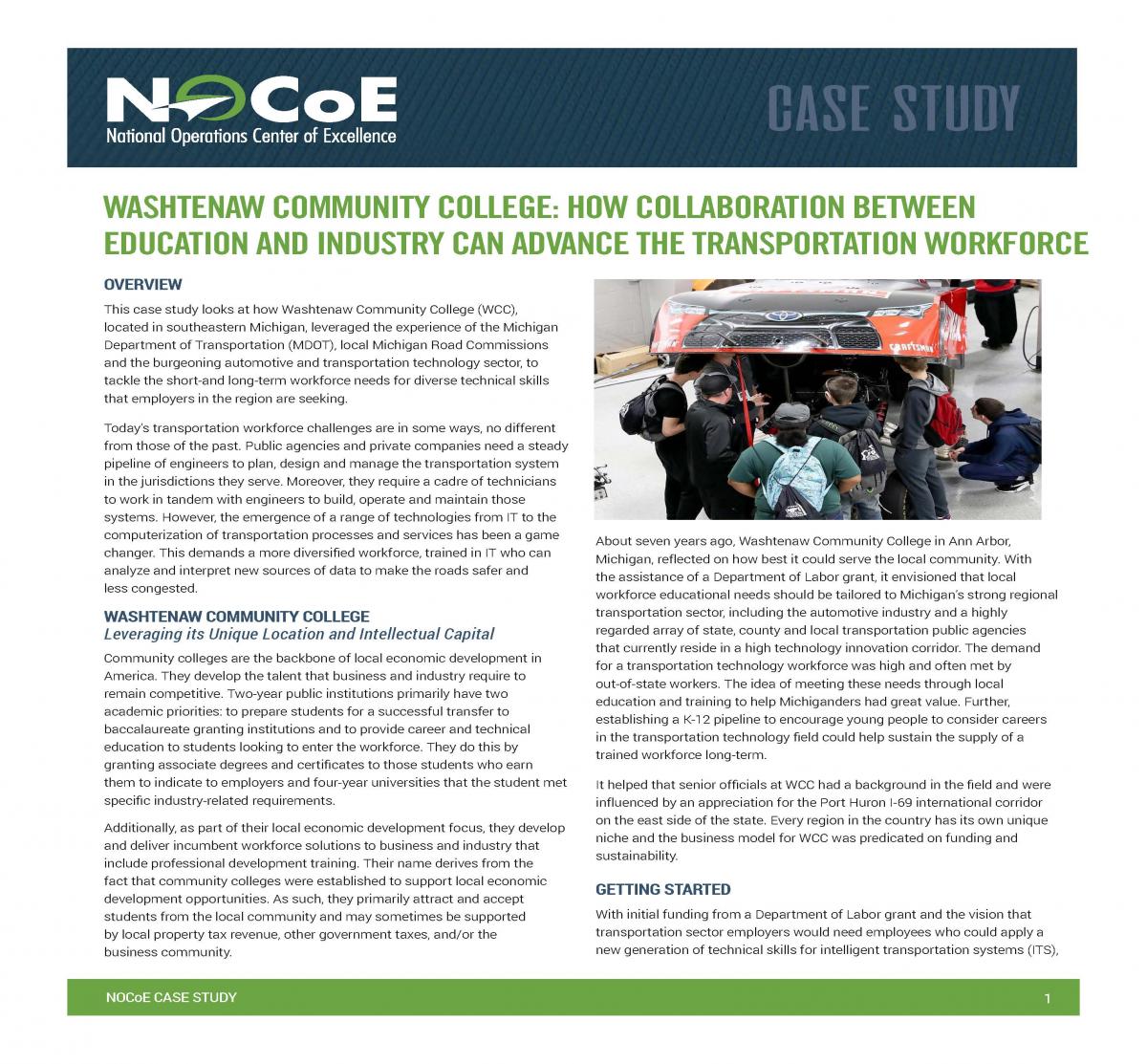Community colleges provide a crucial role in education TSMO professionals but also have the ability to directly support local, regional, and state DOT's by providing curriculum focused on training current and future TSMO professionals.
We want to capture your practices and resources at the community college level. Please email Adam Hopps with any information that would be useful to share with the broader community.
Washtenaw Community College: How Collaboration Between Education and Industry Can Advance the Transportation Workforce
 This case study looks at how Washtenaw Community College (WCC), located in southeastern Michigan, leveraged the experience of the Michigan Department of Transportation (MDOT), local Michigan Road Commissions and the burgeoning automotive and transportation technology sector, to tackle the short-and long-term workforce needs for diverse technical skills that employers in the region are seeking.
This case study looks at how Washtenaw Community College (WCC), located in southeastern Michigan, leveraged the experience of the Michigan Department of Transportation (MDOT), local Michigan Road Commissions and the burgeoning automotive and transportation technology sector, to tackle the short-and long-term workforce needs for diverse technical skills that employers in the region are seeking.
Today’s transportation workforce challenges are in some ways, no different from those of the past. Public agencies and private companies need a steady pipeline of engineers to plan, design and manage the transportation system in the jurisdictions they serve. Moreover, they require a cadre of technicians to work in tandem with engineers to build, operate and maintain those systems. However, the emergence of a range of technologies from IT to the computerization of transportation processes and services has been a game changer. This demands a more diversified workforce, trained in IT who can analyze and interpret new sources of data to make the roads safer and less congested.